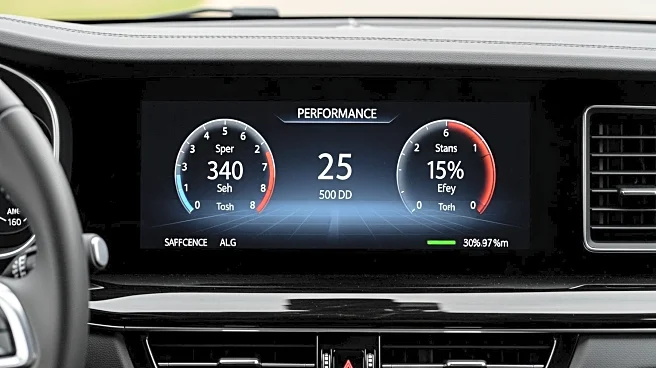What's Happening?
Driver scorecards are being utilized in the trucking industry to improve fleet performance and driver engagement. These scorecards provide regular feedback to drivers on various performance metrics such
as average miles per gallon, idle time, speeding events, harsh braking, incomplete stops, on-time performance, and CSA scores. The data for these scorecards is collected from telematics devices, ensuring unbiased feedback. The scorecards can be standardized across all drivers or tailored to individual drivers, focusing on positive achievements while providing coaching for areas needing improvement. Public recognition and monetary incentives are used to motivate drivers, fostering a competitive environment within the fleet.
Why It's Important?
The implementation of driver scorecards is significant for the trucking industry as it promotes safer driving practices and enhances overall fleet efficiency. By providing drivers with regular performance feedback, companies can identify areas for improvement and reward high-performing drivers, leading to increased motivation and engagement. This approach not only improves safety standards but also optimizes operational costs by reducing fuel consumption and minimizing vehicle wear and tear. The use of telematics data ensures that feedback is accurate and unbiased, which is crucial for maintaining trust and transparency between drivers and management.
What's Next?
As the trucking industry continues to adopt driver scorecards, companies may explore further integration of telematics data to refine performance metrics and enhance coaching strategies. There is potential for expanding incentive programs to include more diverse rewards, such as career advancement opportunities or additional training. Stakeholders, including fleet managers and industry leaders, may also consider collaborating to establish standardized scorecard metrics across the industry, promoting consistency and fairness in driver evaluations.
Beyond the Headlines
The use of driver scorecards could lead to broader implications in the transportation sector, such as influencing regulatory policies on driver performance standards. Additionally, the focus on data-driven feedback and incentives may encourage other industries to adopt similar practices, fostering a culture of continuous improvement and accountability. Ethical considerations regarding data privacy and the balance between public recognition and private coaching may also arise, prompting discussions on best practices for driver management.











